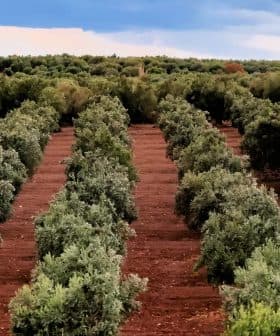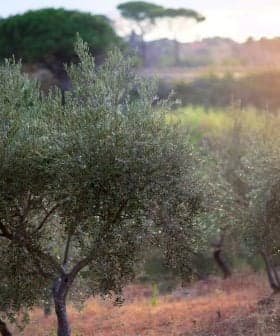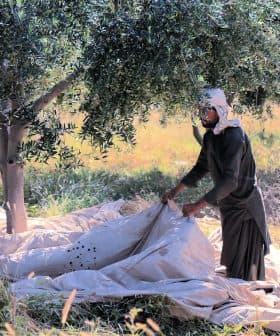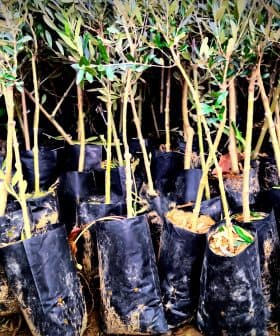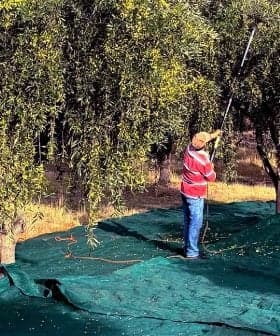U.S. Launches Coordinated Strikes on E.U. Olive Oil Strongholds from Washington and Sacramento
California State Senator Lois Wolk and House Ways and Means Committee Chairman Dave Camp have been leading an organized assault by American olive oil producers and stakeholders against low-quality European imports. This effort includes the passing of a law to create a California olive oil commission and a year-long investigation by the United States International Trade Commission, with potential trade actions and formal WTO complaints to follow. Additionally, Australian producers have joined the fight against low-quality imports, successfully pushing back imports into their country using new quality standards and conventional PR tactics.

California State Senator Lois Wolk and House Ways and Means Committee Chairman Dave Camp
It might not have been the offensive many were expecting over the past few weeks, though it was carefully targeted.
First, there was the release of a report on a year-long investigation by the United States International Trade Commission that some experts say will provide ample grounds for trade actions and formal WTO complaints against E.U. olive oils imported into the U.S.
And yesterday, California passed a law to create its own olive oil commission to conduct research, recommend standards, organize efforts to capture market share and otherwise wage war on low-quality imports.
The proximity of the two events might seem coincidental, but they are the results of an organized assault by a group of American producers and stakeholders now known as the American Olive Oil Producers Association (AOOPA), and their Australian allies.
Their roots go back to a Dixon, California meeting where growers drafted and discussed a domestic marketing order with the eventual aim of holding imports to higher standards.
Then, representatives from California and Georgia were successful in lobbying the powerful House Ways and Means Committee to request a USITC investigation into the “conditions of competition” faced by the fledgling American olive oil industry.
The December, 2012 hearing at the USITC in Washington was such a pile-on that Commissioner Shara L. Aranoff, a Maryland Democrat appointed by George W. Bush, said somberly, “I’m a bit afraid my children will find out what I’ve been feeding them all these years.”
At the hearing, Alexander Ott, then executive director of the new AOOPA, spent much of his five-minute allotment — and more time during direct questioning — stressing the nonexistence of any marketing order for olive oil: “There is no marketing order,” Ott stressed repeatedly throughout the day, adding “the hysteria over a potential federal marketing order is somewhat humorous.” (Ott is no longer with the association)
The mystical marketing order, however, found a way into the United States Farm Bill. California producers pushed for a provision that would have required imported oils to be subject to restrictions such as taste testing when a marketing order for olive oil is established. The California Olive Oil Council called the olive oil provision part of “a common sense program requiring imports to be held to the same standards as American olive oil.”
At around the same time, Lois Wolk — the Davis, California state senator and a Dixon attendee — was holding a hearing of her own in Sacramento before a packed room and an audience of hundreds who watched live via a webcast. Wolk’s newly-formed “State Senate Subcommittee on Olive Oil and Emerging Products” heard a procession of witnesses presenting their accounts of the challenges faced by the state’s olive oil producers who confronted, they said, unfair competition from unscrupulous European producers and importers who don’t play by the rules.
Wolk went on to garner bipartisan support for the bill signed into law yesterday that sanctioned the formation of the state commission that will use annual assessments, collected from producers who make over 5,000 gallons per year, to “enhance the competitiveness of the industry within the state, national, and international marketplace.”
But the big guns are in Washington, and lawmakers are expected to not let the estimated $2 million taxpayers spent on the USITC report be wasted. Such reports often result in formal complaints and trade actions including higher tariffs and import restrictions.
“I don’t think anyone can deny it has been a pretty bad couple of weeks for American importers and their European partners,” said an olive oil broker who wished not to be named.
Not surprisingly, the International Olive Council has had little to say about the latest offensive except to acknowledge the impressive effort that went into the USITC report, and to argue that some of the information it contained was debatable, though it didn’t say which.
No one is questioning one of the findings by the investigators: that the United States has no plans to join the Madrid-based IOC, citing government officials who confirmed an increasingly isolationist policy toward “U.S. membership in international commodity organizations.”
Like a U.N. Security Council paralyzed by a Russian veto, the U.N.-sanctioned International Olive Council is seen by American agencies as unlikely to further U.S. interests, with the mere five “participation shares” it would have, compared with Europe’s 684.
The Americans will not need to go it alone this time, however. Australian producers, and their fearless leader, Paul Miller, have waged a sustained campaign that has managed to push back imports using a new set of quality standards and conventional PR. Imports into Australia fell seven percent last year. Such a decline in American olive oil imports would amount to 22,000 tons — or almost three times what the U.S. produces — bringing a whole new meaning to the “Land of Oz.”


